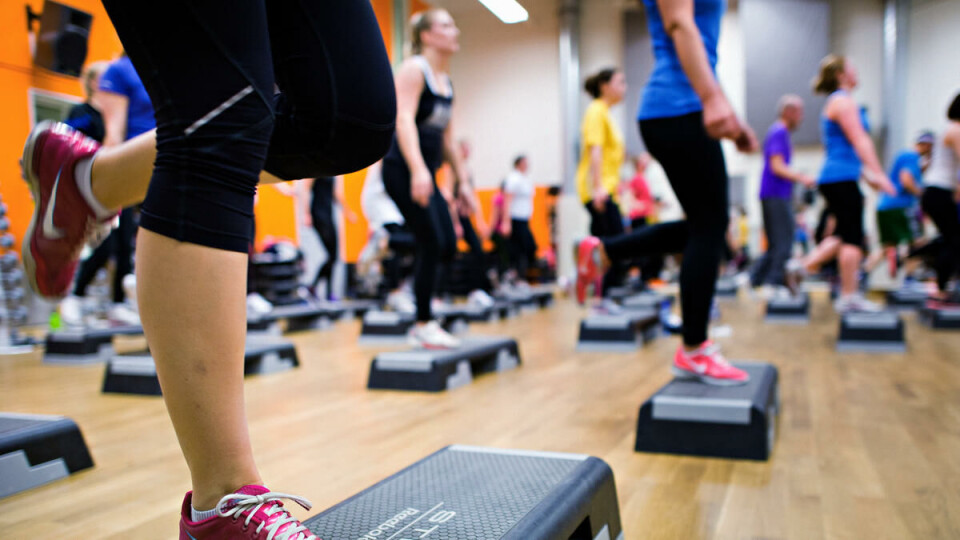
Students’ diet and exercise suffer during the pandemic: This is how you handle lockdown life
Take-away in front of the screen and walks in the cold. After almost a year of lockdown, surveys show that young adults struggle with diet and exercise more than older age groups.
For many students, the past year has consisted of months of having the student accommodation, shared flat, or basement apartment as the only study space. At the same time, exercise, in the form of both gyms and organized sport, is difficult or impossible to participate in these days.
Numbers from the national health survey 2020, conducted in October-November of last year, show that 23 percent of people in the age group 18-24 think they eat less healthy than before. A whopping 44 percent believe they are less physically active.
In comparison, only 7 percent of the age group 50-66 think they eat less healthy now. 19 percent think they are less active.
Annechen Bahr Bugge, senior researcher at Oslomet, is not surprised that young people feel the most change in their eating habits during the pandemic.
Older population groups reply in the survey that they have more or less the same eating habits as before. Bugge believes that the fact that young people experience this situation as a more of a dramatic change than older age groups is related to routines and eating habits.
– Young adults are more used to eating with friends, eating out and on the go, than those of the older age groups. That which fills young people’s lives, such as restaurants, bars, concerts and studies, has been closed for almost a year. We see that the frames around eating habits have changed.
The article continues below the photo.

Link between food and emotions
Students have a tendency to fall between two stools: They don’t have an employer that has a duty to accommodate for good sitting position or opportunity for movement in the home office when they are studying. Few student housing options come with enough space for home exercise and with a kitchen that encourages cooking at a high level.
Bugge thinks it is important to point out that young people have become more concerned with eating healthy. There has been a noticeable drop in sugar consumption and a drastic increase in the interest for vegetarian food in the last decades. There is also a certain portion of students who report that they eat healthier now than before the pandemic.
Bugge says that her research shows a strong connection between food and emotions.
– In a challenging daily life, with lots of alone time, many will resort to comfort food and treating themselves with food. You bake more and eat more of the typical “homecooked meals”. When offices and university buildings are closed, less food is eaten in the cafeteria and on the go.
She also thinks it is relevant that older people are more used to eating seafood and fish, while young people are more used to meat, which may also reflect in their perception of what is healthy and unhealthy.
In a challenging daily life, with lots of alone time, many will resort to comfort food and treating themselves with food
Annechen Bahr Bugge, senior researcher at Oslomet
Young people have different activity habits
The department leader for Sports Medicine at the Norwegian School of Sport Sciences, Jostein Steene-Johannessen, believes that the reason why so many young people struggle to maintain their activity level, is due to the fact that the arenas they use are those that have become unavailable during the pandemic.
– Older population groups often have different activity habits, while young people are more likely to participate in organized exercise at gyms or in sports teams. If those arenas remain closed for a long time, it would be concerning both for individuals and for public health.

Steene-Johannessen thinks it’s too early to say anything about the consequences of the long period of increased inactivity. He believes the authorities and the sports as a whole have a responsibility to accommodate for the quick recovery of organized sports for the children and youth after the pandemic.
– Movement is incredibly important for physical and mental health, and sports teams and other organized arenas for activity play an important role here, he says and adds:
– It will be important for the public health to observe if there will be changes in the population’s activity habits when society re-opens. Perhaps the young have tried new activities in this period?
Senior researcher Bugge at Oslomet does not think that today’s youth will maintain an unhealthy way of life when the restrictions are lifted. It is too early to say anything about the consequences of the changes in society, such as use of home office and less work travel, she argues.
– When schools, bars and restaurants re-open, most young people will return to a way of life more similar to that of their life before the pandemic. Youth today are concerned with exercise and diet, and this is likely to continue.

































